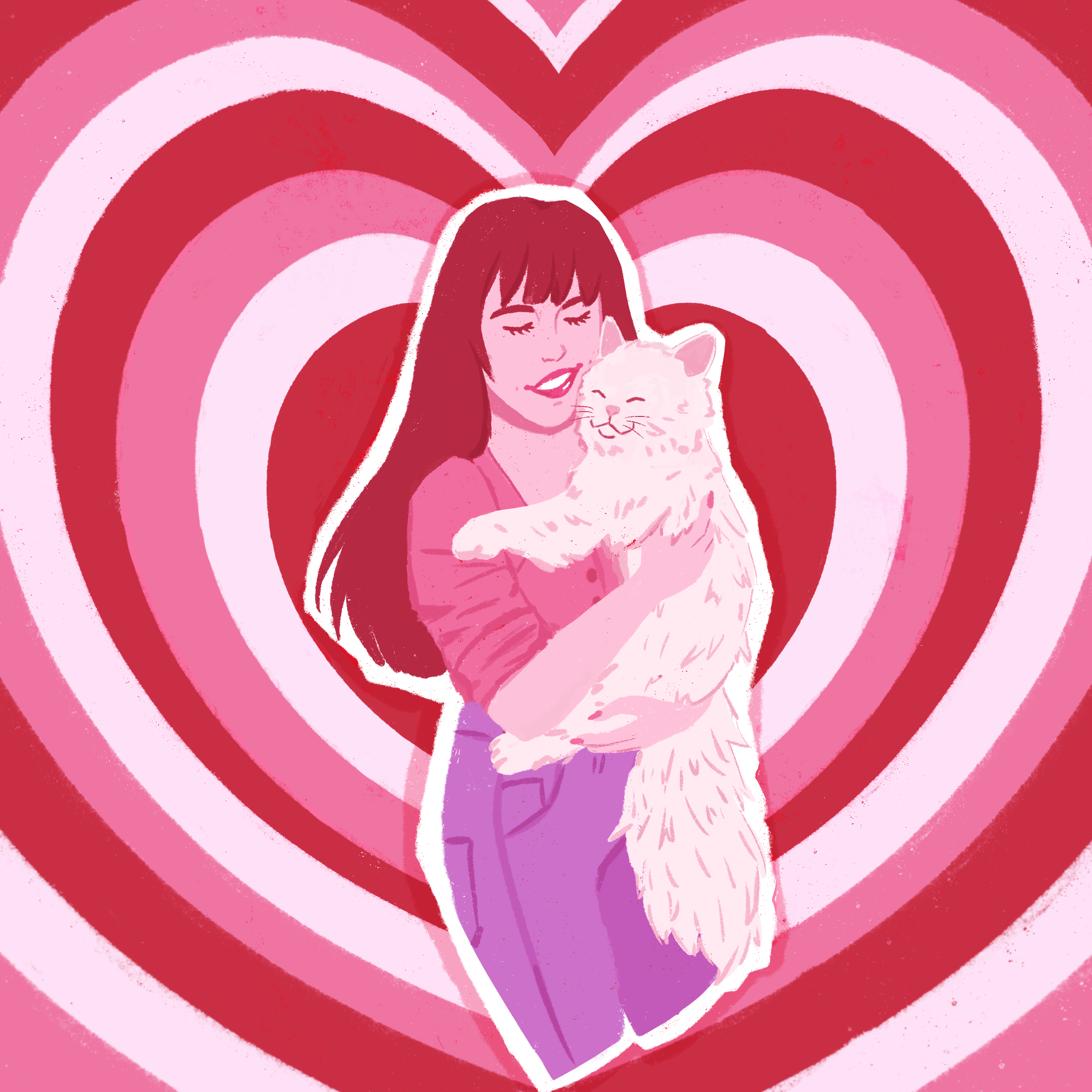Crazy cat lady cliche is misleading, according to new study by UCLA researchers

(Courtney Fortier/Daily Bruin contributor)

By Bernard Mendez
Sept. 20, 2019 12:21 a.m.
A study conducted at UCLA found that the “crazy cat lady” stereotype may be more fiction than fact.
The results found there is no substantial difference in self-reported symptoms of depression and anxiety between people who own cats, dogs or no pets, and concluded there is no evidence to support the “crazy cat lady” stereotype.
In the study, a team of researchers from UCLA and Aarhus University in Denmark asked UCLA students to identify as cat owners, dog owners or nonpet owners. The students were then asked to report their symptoms of depression and anxiety. Additionally, the surveyed were tasked with listening to distress sounds from cats, dogs and babies and rating them based on how distressing they thought the sound was.
Christine Parsons, a researcher on the team and associate professor at Aarhus University, said there are often negative perceptions of cat owners, which the study looked to refute.
“As with many myths and stereotypes, people really do have negative connotations about cat owners,” Parsons said. “We used really robust measures … to assess constructs we felt relevant to the stereotype.”
The cat lady stereotype, depicting women who own cats as eccentric, has a long history in popular media, said Richard LeBeau, study co-author and researcher at the Anxiety and Depression Research Center at UCLA.
“I think that it’s really one of those things that’s (not) rooted in actual data just in … stereotypes and cliches,” said LeBeau.
The team used standardized measurements to test for signs of depression and anxiety in subjects, as well as examine the nature of their interpersonal relationships. Researchers found there was no difference in symptoms between cat owners and nonpet owners.
Parsons added that the researchers didn’t find any evidence to show that dog owners, who are often perceived to have positive traits, were different than nonpet owners.
Eshan Uniyal, a second-year mathematics/economics student, said although he is Indian, his exposure to Western media has led him to believe the “crazy cat lady” is a common stereotype.
“If you’re watching a sitcom, maybe they’ll have a joke about how someone probably has 14 cats or something,” said Uniyal. “That has a very specific sort of implication.”
He also added he thinks that, for most people, the results should confirm what they already know, that the “crazy cat lady” stereotype is a myth.
The study also examined how different pet owners rated animal sounds. The results revealed that while cat cries were generally rated as less distressing than baby cries, people rated dog cries to be just as distressing as baby cries.
LeBeau said this indicates there is a strong connection between humans and dogs. He said this may be because dogs were domesticated to spend time with humans, while cats are usually more independent from their owners.
He added that because the study was so well-received, the research team will look to conduct a follow-up study, which will be performed on a larger scale and use internet surveys.
In the future, the researchers will also look at other factors – such as length of pet ownership and number of pets owned – for their effect on pet owners. Parsons said they also hope to examine new pet owners before and after acquiring pets to examine the impact of pet ownership.
LeBeau said the team was not expecting to receive as much attention as it did, but had a feeling it would catch on more than their other research because the results were lighthearted and easily digestible.
“Cats and dogs are beloved by people,” he said. “Better understanding why we have that connection to animals is something people are interested in.”

